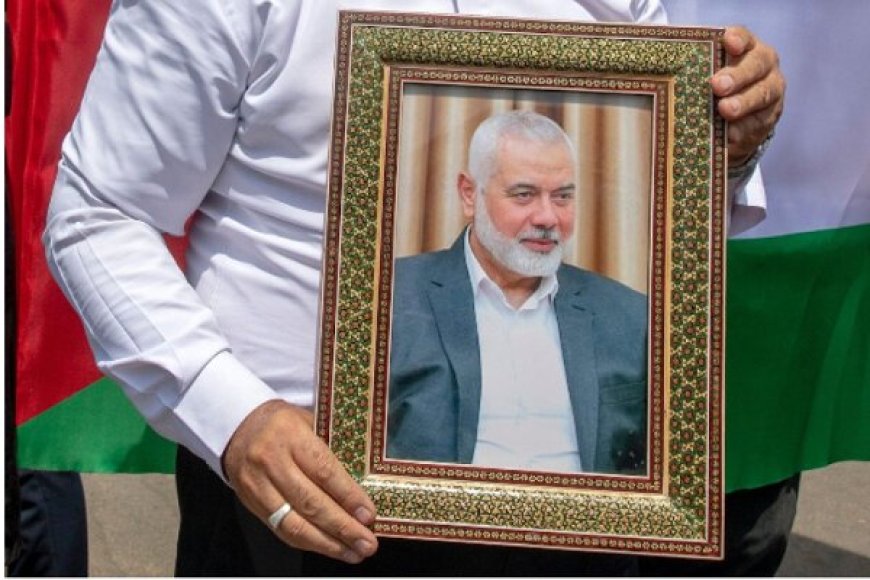The Thin Line Between Deterrence and War: How Will Iran Respond to Israel’s Assassination of Haniyah?

In the aftermath of Ismail Haniyeh’s assassination, a maelstrom of debate has erupted over Iran’s potential response. Some observers suggest that any form of retaliation would play directly into the hands of Israeli Prime Minister Benjamin Netanyahu, while others argue that inaction would achieve the same effect. Meanwhile, discussions continue to swirl around the method of Haniyeh's assassination and the identities of those complicit in that shameful act of terror.
Yet these surface-level analyses miss the crux of the matter. The critical question is not merely how or why Haniyeh was targeted, but rather why his assassination took place on Iranian soil—a location that is far from the most convenient or accessible. Had Haniyeh been residing in Turkey or Qatar, where American influence looms large, it is doubtful that Israel would have dared to strike with the same brazenness.
This assassination is emblematic of a deeper, more troubling issue: a profound and pervasive ignorance of Israel’s strategic mentality that permeates various sectors—academy, politics, media, and security. Understanding Israel’s behavior, particularly within the context of its aggression in Gaza, its internal political machinations, and its broader regional ambitions, is essential. Without this insight, effectively countering Israel’s nefarious actions becomes an exercise in futility. It is this critical gap in understanding that undermines Iran’s ability to formulate a robust and adequate response.
Even with the most stringent protective measures, Israel's advanced technological capabilities and its infiltration networks—long embedded in the region—cast doubt on the possibility of preventing such assassinations. The core issue, however, is not merely operational security; it is the erosion of Iran’s deterrence. This deterrence, if properly maintained, could have prevented such brazen acts by Israel, irrespective of their tactical advantages.
Rebuilding this deterrence is not just necessary—it is imperative. But this is not simply about filling knowledge gaps; it requires a restoration of credible threats backed by strategic foresight. The Iranian government may have believed that its "Honest Promise" operation had restored deterrence, but Haniyeh's assassination is a stark reminder of the contrary. The response to the attack on the Iranian embassy in Damascus, which shattered the longstanding taboo against direct confrontation with Israel, was a necessary but insufficient step. Israel has since recalibrated its strategy, focusing its aggression within Iran’s borders while continuing its assaults in Syria.
The Iranian leadership now appears to grasp the urgency of restoring deterrence, yet the path forward is fraught with peril, not least the specter of war. In years past, Iran could have responded more decisively to such provocations without the heavy burden of potential escalation into full-scale conflict. Today’s geopolitical landscape, however, is far more complex, rendering any response more perilous and demanding intricate, calculated strategies.
Iran’s decision to retaliate for Haniyeh’s assassination carries profound implications. Some argue that a response would only serve Netanyahu’s objectives, while others contend that inaction would be equally damaging. To chart the right course, one must discern Netanyahu’s true intentions, which, based on available evidence, do not necessarily indicate a desire for outright war. If war were indeed the goal, Iran’s past actions would have provided ample pretext. However, this does not suggest that Iran can afford to respond without careful consideration. Israel’s strikes are meticulously designed to exploit perceived weaknesses in Iran's capacity to wage war on a grand scale.
Israel’s military prowess is centered on its air superiority, but its glaring vulnerability lies in its lack of territorial depth. Despite being emboldened by unwavering American support, Israel is acutely aware of its strategic fragility, which is why it has refrained from launching a full-scale war against Hezbollah—a force capable of inflicting catastrophic damage.
For Iran to truly reestablish deterrence, its response must not only meet but exceed Netanyahu’s expectations, transcending the limitations of the "Honest Promise" operation. While this may trigger a series of retaliatory strikes, it is unlikely to escalate into an all-out war unless there is a critical miscalculation. Nevertheless, in the volatile arena of military conflict, even the most carefully laid plans can unravel in an instant, potentially leading to devastating and unforeseen consequences.
Ultimately, Haniyeh’s assassination represents a pivotal moment in the ongoing struggle between Iran and Israel. The restoration of deterrence is not merely a question of military might but of strategic acumen and foresight. Iran must navigate these treacherous waters with a clear-eyed understanding of Israel’s strengths and vulnerabilities, ensuring that its response is both powerful and precise without tipping the delicate balance towards a catastrophic war.













































